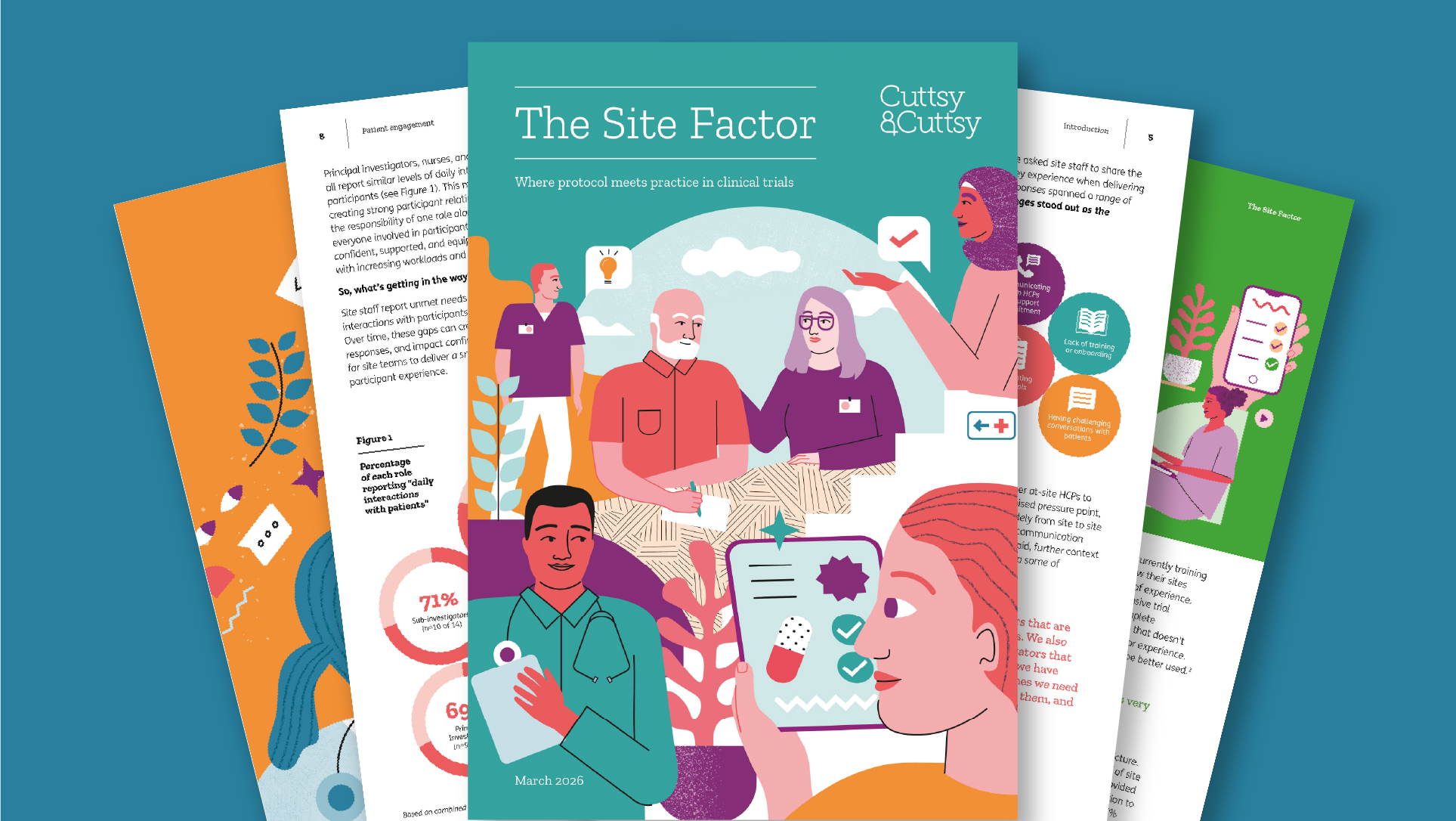Completing the puzzle: smarter training, stronger trials

In our previous article, we explored the range of pressures on site staff that impact the ability to focus on the human side of clinical trials, and how this often has a knock-on effect on participant engagement and retention.
In this follow-up, we focus on a range of possible solutions to ensure that site training develops not only technical accuracy but also the skills needed to build trust, communicate clearly and support participants throughout their trial journey
From rethinking how investigator meetings, site initiation visits and other sponsor-led training events are structured, to freeing up time for learning and polishing engagement skills, to providing practical tools that staff can use immediately, the following suggested strategies show how people-centred care can become a core part of operational excellence.
Make sponsor-led training events a platform for patient-centred skills
Sponsor-led training meetings are ideal opportunities to set expectations for both technical accuracy and human connection. Alongside protocol requirements, why not allocate time for practical training in empathy, active listening and managing sensitive conversations as well? It sends a clear message that patient-facing skills are valued as much as compliance and data accuracy, whilst also having a clear and beneficial impact on your recruitment and retention practices
Use digital formats to free up in-person time for engagement skills
Protocol-heavy content is essential, but it does not need to dominate face-to-face sessions. Delivering these elements in self-paced digital formats allows in-person training to focus on human-centric skills. This blended approach maintains technical standards while creating space for interpersonal aspects of trial delivery.
Provide practical tools for engaging with participants
Training works best when paired with ready-to-use tools such as conversation guides, checklists for handling common concerns or short video demonstrations of best practice. Evidence from a Cochrane review of recruitment strategies shows that clear communication tools and support for engagement activities can improve recruitment outcomes.1
Build awareness of available materials and resources
Even the most well-designed resources can’t make an impact if site teams are unaware of them or unclear on how to use them. Training should include an overview of materials available to staff and participants, covering:
- Participant information leaflets and consent aids to support informed decision-making
- Visit schedules and reminders to help participants stay on track
- FAQs and troubleshooting guides for common queries
- Multilingual resources to engage diverse populations
- Digital tools such as patient portals or apps for reporting and communication
Equally important is showing staff how to use these resources effectively. Practical demonstrations, role-play scenarios and tips on when and how to introduce materials during participant interactions can increase the likelihood that resources are used consistently and with impact.
Recognise and reward participant-centred practice
Recognition helps reinforce participant-focused behaviour. Sponsors can highlight sites that excel in engagement, for example, through retention rates or positive feedback. Rewards do not need to be costly; certificates, small grants for site improvements or public acknowledgement in sponsor communications can all motivate sustained focus on patient-centred care.
The future belongs to trials that put people first
Integrating people-centred skills into site training is more than a gesture; it is a driver of measurable trial success. Sponsors who invest in this approach can expect:
- Faster recruitment through deeper trust with participants
- Improved retention as participants feel valued and supported
- Better data quality from honest, timely reporting
- A reputation for trials that succeed on both operational and human levels
When engagement skills training sits alongside protocol mastery, trials become more resilient, inclusive and efficient.
Sponsors who prioritise this balance will be setting the pace for faster, more diverse recruitment and stronger retention, leading the way in shaping the future of more efficient, inclusive and participant-focused trials.
Want to chat more about how to make these strategies a reality in your clinical trials? Get in touch.
Reference












